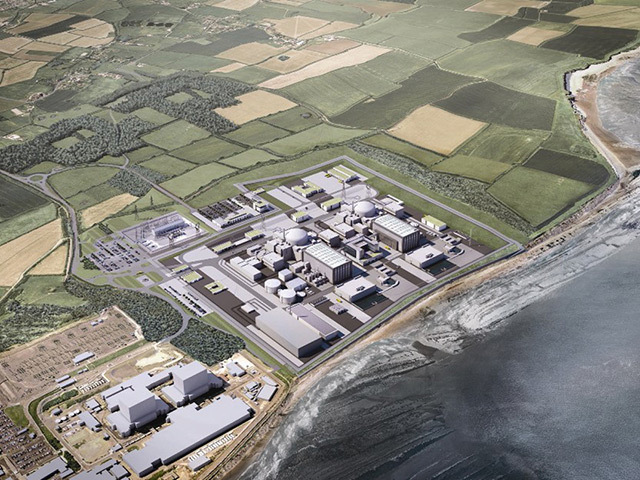
The Government is set to announce a multibillion pound investment in a new nuclear power station, as well as underwriting billions of pounds of loans.
Business Secretary Greg Clark is expected to give MPs details later on Monday of a funding deal for the proposed Wylfa Newydd plant in Anglesey, North Wales.
The Government is expected to make a direct investment in the project alongside the Japanese government and Horizon Nuclear Power, a subsidiary of Japanese giant Hitachi, which is developing the project.
A guaranteed price for the electricity generated at the power station is expected to be around £15 per megawatt hour less than the £92.50so-called strike price awarded to EDF for the Hinkley Point C nuclear power station being built in Somerset.
Justin Bowden, national officer of the GMB union, told the Press Association: “We are witnessing an outbreak of energy policy common sense.
“The go-ahead on a new, publicly funded power station at Wylfa, and the accompanying creation of thousands of new jobs and apprenticeships, means a huge boost to the economy and reliable electricity to millions of homes.
“It is the facts, not the hype, which should determine the UK’s energy policy decisions.
“If we are to address the reality of climate change – whilst keeping our country’s lights turned on, our homes heated and our economy working – then we have to face up to the fact that we need a mix of energy which combines renewable sources, like wind and solar, with the reliable base load electricity capacity that comes from zero carbon nuclear and lower carbon gas.”
Sue Ferns, deputy general secretary of the Prospect union, said: “The Government’s decision to take a direct stake in the Wylfa nuclear power plant is a sensible move that needs to be adopted for wider UK energy policy decisions to allow a low-carbon infrastructure to be fully developed.
“By taking a share in this project the costs can be lowered, work can be directed to UK companies and the UK’s skills base can be developed.
“In order to capitalise on this the Government must take a similar approach to other sites such as Moorside in Cumbria.
“Rather than choosing one energy infrastructure model over another, the Government must take a broad view and recognise that other projects such as the Swansea tidal lagoon also have an important role in building energy resilience and capacity and would benefit from similar funding models.
“The energy sector needs to see this latest change as the start of a new approach.”
Recommended for you
